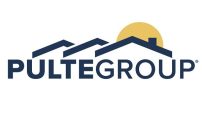My wife and I are in a new city. It’s time to go out to dinner. Will we randomly walk around and pick a restaurant? Absolutely not. Out comes the smart phone and in seconds we’re tooling through Yelp or TripAdvisor checking out all the local restaurants, comparing reviews, reading menus for options and prices, looking for healthy ingredients, scoping out desired amenities such as music or outdoor dining, and choosing preferred locations. Restaurants have historically been one of the riskiest businesses and now they are even more so. We are such informed consumers, survival depends on providing a compelling dining experience.
In fact, every other industry has a similar story. Consider how much more difficult it is being a car salesman today compared to a decade ago. Buyers are so much more informed about prices, reviews, performance, safety, resale value, and maintenance, the old line, “what will it take to get you in this car today,” is laughable. Online retail makes competition brutal where it’s easy to get side-by-side product descriptions, specifications, prices, and reviews. Believe it or not I was inspired by one of those ‘as seen on TV’ ads showing a tube-applied filler that miraculously makes blemishes in wood cabinets and furniture disappear. However, there was no way I was going to purchase it without online research. Within seconds I was able to compare a handful of products and wound up choosing one that had a much higher customer review scores than the original one I saw advertised. What a waste. One product invested in the advertising that captured my initial interest, but I chose another because the reviews suggest a much better consumer experience.
Although home builders have been somewhat removed from this profound new consumer reality, stayed tuned. The informed home buyer is coming to a housing industry near you. The first sign has been a 250%-plus increase in home buyer web searches over a four-year period. Today, about 90% of home buyers search the internet to scope out the seven or eight builders they will consider for a new home purchase. That’s a good start, but it’s the tip of the iceberg. Now watch the amount of available consumer content increase exponentially. Here’s a glimpse of how much smarter home buyers will be. As you read this partial list, ask yourself, “will you be ready?”
Insulation Smart: Historically there have been substantial problems with the quality of insulation installation. That’s because insulation installers have been paid by the piece rather than performance and get inadequate training. Extensive hidden thermal defects common in home construction will become obvious. That’s because a good quality infrared camera that used to cost over $30,000 about 15 years ago is available today for well under $1,000. There is even a reasonable add-on infrared camera device and app for smart phones that costs less than $200. This low cost of entry should inspire home inspectors to add this diagnostic since it will add substantial value to their service. And that’s significant because home inspectors touch about 70 percent of all home transactions. Also for consideration, a company called Essess, is planning to thermal scan homes all across the U.S. with a high-powered infrared camera mounted on top of a Toyota RAV4. These scans will be augmented with a diagnostic report generated automatically for each home with software developed by a team from MIT. Very quickly the builders who build good and bad thermal enclosures will be obvious.
Window Smart: Even where builders get the insulation right, windows can undermine whole-wall performance in climates with cold winters. After all, ENERGY STAR windows provide only R-3 thermal resistance and effectively are a giant thermal hole that reduces whole-wall effective R-values 40 to 70% below the rated wall insulation R-value. It’s like getting pennies on the insulation dollar. And our friend the infrared camera is going to make this performance defect abundantly clear. Even the average home buyer will quickly learn that the R-5 and R-7 windows are essential to good thermal protection anywhere it gets really cold.
Moisture Smart: 100 percent of windows leak. Roof-wall intersections are a moisture penetration problem waiting to happen. Foundation drain tile clogs in about 7 or 8 years. Stucco and cultured stone are like cladding walls with a sponge. A multitude of penetration flashing practices are leaks waiting to happen. Effective water protection solutions for all of these details are simple, but there is a long history housing construction with quality problems or missing details. Once again our friend the infrared camera will expose a whole array of water protection defects that can disrupt builder reputations.
Comfort Smart: If I had to guess, only a tiny fraction of HVAC systems are installed as specified by manufacturers. And even minimum-code home builders today experience a whole new set of risks regarding ensured comfort. This is due to significantly reduced air-flow and longer swing seasons in better insulated and air-sealed construction. And homeowners will increasingly have their HVAC systems equipped with new monitoring systems and dashboards that report routine defects in HVAC installations including improper air flow, under- and over-charged refrigerant, and actual energy efficiency below rated performance. Now your buyers will have empirical evidence of comfort defects.
Health Smart: Even minimum-code homes are reasonably air-tight in most parts of the country. As a result, comprehensive indoor air quality measures are no longer extra credit. At the same time, consumers show an impressive willingness to spend when it comes to healthy choices. As evidence, we spend about $40 billion/year for certified organic food and $20 billion/year for bottled water. Watch homeowners get substantially more informed about indoor air quality in the very near future. A whole array of monitors, dashboards and smart phone apps are increasingly available to report potential contaminants in homes including carbon monoxide, particulates, VOCs, radon, and moisture. Health is an emotional issue that you don’t want to get on the wrong side of with informed homeowners.
Review Smart: We’re just at the beginning of seeing builder reviews emerge on web sites. I predict they’ll be readily available in a few years. It’s too easy and profitable to do so. If a home buyer is about to spend hundreds of thousands of dollars on your product, you business is going to depend on good-to-great reviews.
Leader Smart: Maybe the most challenging part of selecting a home builder is nailing down who is truly a ‘quality’ builder. Very quickly, high-performance builders achieving ENERGY STAR, Zero Energy Ready Home, Indoor airPLUS, and a whole array of green certifications are realizing that there is often a direct correlation between third-party verified performance and being a quality builder. More and more non-certified builders without these prominent labels will have to explain to their buyers why they are lagging rather than leading the industry.
I could go on, but you get my gist. The old business model of relying on good marketing without a strong customer experience will quickly become less effective for builders because home buyers are about to get so much more informed. That’s why we spend two days with builder executives at Retooling Workshops totally dedicated to improving their homeowner experience. I invite you to join us and get ready for the informed buyer revolution.
This article is part of a series on housing innovation based on the author’s book, ‘Retooling the U.S. Housing Industry: How It Got Here, Why It’s Broken, and How to Fix It.’ This book examines opportunities to transform five key homebuyer experiences: 1) Community, 2) Design, 3) Performance, 4) Quality, and 5) Sales. Each article features one innovation or business principle covered in workshops with builder executives. Find out how to participate in one of these workshops at www.SamRashkin.com.



